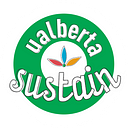Freya Hammond-Thrasher: Indigenous food sovereignty
“Food sovereignty has only just recently entered into academic literature. But it’s been a living reality for Indigenous people for a very long time.”
By Jenna Bell
Towards the end of the school year, you may have strolled into CCIS to find a sea of beautifully crafted posters being shown off by enthusiastic students. This annual event is known as FURCA, the Festival of Undergraduate Research and Creative Activities. Every year the Undergraduate Research Initiative hosts this festival to showcase undergraduate achievements across all disciplines. This year, the theme for the festival was sustainability.
Freya Hammond-Thrasher is a fourth year sociology student at the University of Alberta who presented her thesis project on Indigenous food sovereignty. Her thought-provoking work won an award for Outstanding Sustainability Research from the Sustainability Council.
What got you thinking about food sovereignty in Indigenous communities?
I started from the statistic that 33 per cent of Aboriginal households — compared to 8 per cent of non-Aboriginal households — are food insecure. This means that they’re lacking access to enough food for their meals. Some even have to choose between meals and rent. It’s a really serious issue. I was interested in looking at the reason why there is such a great disparity between Aboriginal and non-Aboriginal households.
I learned that there’s a huge cultural aspect to Indigenous food, particularly when it comes to accessing traditional hunting grounds. Additionally, residential schools greatly disrupted intergenerational knowledge, such as how to harvest the right berries and knowing how to cook traditionally.
That’s how I settled on food sovereignty versus food security. Food sovereignty captures those political aspects of Indigenous communities — having their own right to choose what they eat and how they eat it. Whereas food insecurity just looks at those statistics, I wanted to look at those rich qualitative experiences beyond the numbers.
And then in terms of narrowing it down, I’m studying food sovereignty in the context of urban Canada, because 60% of indigenous people now live in urban centers and cities.
And you ended up winning the Outstanding Sustainability Research award for your project (congrats!) Did you expect to win?
I didn’t really expect to win that at all! I’m not sure if this is entirely correct, but I don’t think I was actually nominated before FURCA began. To be honest, it felt like an even better win because of that — not because I proved people wrong, but just because I think it’s really overlooked how Indigenous food sovereignty, and just sovereignty issues in general are so inherently connected to environmental sustainability and social sustainability. So it’s really great that by talking about my research I could convince people of the project’s importance to sustainability.
“Just do something that you’re passionate about that is for the good of society”
When did you first become interested in sustainability?
It’s kind of a wild story. When I was seven I asked my dad, “what do I need to do to get on television?” He replied, “just do something that you’re passionate about that is for the good of society and you’ll get on TV.” So we came up with this fundraiser where I hiked all the trails in Elk Island to raise money for the Friends of Elk Island Society. That was about 150 km in total. And I did end up getting on television and in the newspaper. My sister also wrote to the Queen of England about it — I then received a signed letter from the Queen commending me for it. So not very altruistic motives for getting into sustainability, but I always loved hiking — that’s where it all started.
How did you hear about FURCA?
It was in Women’s and Gender Studies, in my first year on campus. My prof strongly recommended that we get involved with FURCA because she knew how good it was for undergrads who want to get into research. So I wrote a creative poem for my final course project, and it ended up being such a personal poem that I didn’t want to show it at FURCA. But it’s always been on my mind since then. The research that I’m doing now for my thesis is more thorough, and I feel good about it. I have something to say that’s not quite so personal. I decided since it’s my last year — I might as well get involved.
What was the process like for applying to FURCA?
There is basically an online form that walks you through the whole thing. It leads you through a series of questions that were really helpful. The process actually helped me for designing my poster. I found the process to be really easy. It’s nice that I could present my thesis research, but if you are a first or second year student with not as much experience, you’re totally welcome to do a smaller research project.
Find out how you can do your own research and be a part of next year’s FURCA with the Undergraduate Research Initiative.
